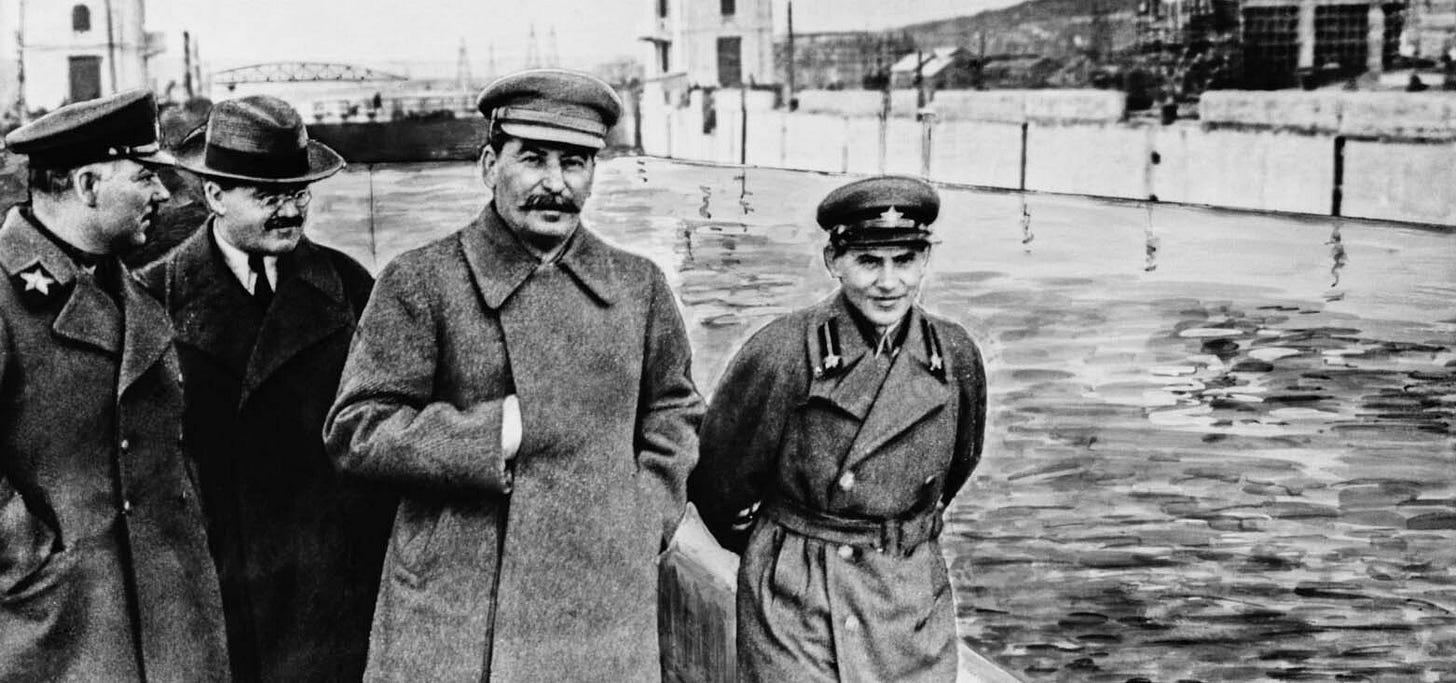Inside Xi Jinping's Purge Politics: How China’s Internal Shake-Up Is Reshaping Global Strategy
"Who controls the past controls the future. Who controls the present controls the past." - George Orwell, 1984
Karl Marx, in his The Eighteenth Brumaire of Louis Bonaparte, had stated that “history repeats itself, first as tragedy, second as farce”, a statement that stands to be particularly true in the case of China. With Xi Jinping’s ever-growing consolidation of power, one is taken back to the vestiges of history, as his tightening grip on the country is a fateful echo of Mao Zedong’s tumultuous political years. Plagued by economic headwinds, intensifying geopolitical rivalries, and a turbulent political landscape, the resurgence of political purges raises serious questions that warrant contemplation.
The Resurgence of Political Purges
To give a little context, in 2023 and into 2024, China witnessed a dramatic downfall of several senior officials whose rapid ascent had once symbolised Xi Jinping’s growing authority, writes Sun Yun in ‘China’s Internal Politics and the Future of Its Foreign Policy’. Perhaps the most startling amongst these disappearances was that of Li Shangfu, China’s Defence Minister and a key figure in the modernisation of the People’s Liberation Army (PLA). Li was appointed in March 2023, but he vanished rather abruptly from public appearances by late August.
In October, the state media had confirmed his removal, citing vague charges of “disciplinary and legal violations.” Although no official explanation followed, critics have long suspected links to corruption in military procurement, particularly given Li’s prior role overseeing the PLA’s Equipment Development Department. Another equally astonishing fall was that of Qin Gang, the then-Chinese Foreign Minister.
A close confidant of Xi and once considered a rising star, Qin’s fall from grace took place in July 2023 after weeks of unexplained absence. The state media offered no details beyond generic reasons about “health reasons,” fueling speculations and theories about scandals, political infighting, or even security concerns tied to foreign intelligence.
To top it off, Miao Hua, a senior military official from the Central Military Commission, along with over a dozen PLA generals and a few defence industry executives, has also been implicated this year.
Purges in the Chinese political landscape are not an anomaly; however, one cannot deny that there has been a rapid intensification of these in the last five years under the leadership of Xi Jinping. Since 2012, Xi’s tenure has been marked by an unprecedented anti-corruption campaign, which has either disciplined or removed over 1.5 million officials.
Since 2018, however, the purges have been targeted at perceived political disloyalty and ideological non-conformity. In fact, in 2021, senior figures in China’s Ministry of State Security were removed amid allegations of political factionalism and personal networks perceived as a threat to Xi’s authority.
The Disappeared Elites
Recent years have seen high-profile disappearances and removals, including:
Qin Gang, former Foreign Minister
Li Shangfu, Defence Minister
General Li Yuchao, head of China’s Rocket Force
The entire senior leadership of the PLA Rocket Force
Not only the political world but China’s tech industry has also felt the weight of such intervention. Jack Ma of Alibaba had, after criticizing China’s financial regulators in 2020, faced investigations and regulatory crackdowns. This move reflected Xi’s determination to subordinate private enterprise to the Party's interests.
What Drives Xi’s Strategy?
Xi’s purges serve three main purposes:
Power Consolidation: Weakening internal factions and rivals.
Command and Control: Ensuring unquestioning execution of orders, especially within the military.
Narrative Control: Crafting a historical legacy aligned with the "China Dream" and framing Xi as its sole architect.
Dr. Harsh V. Pant, from Observer Research Foundation, suggests this is also a projection tactic: "When domestic power is uncontested, the external posture becomes bolder."
Mirroring USSR
The current Chinese purges, to a certain extent, resemble the Great Purge of Joseph Stalin in the USSR, although it is not nearly as violent. Stalin, much like Xi, had used these purges as tools to consolidate power and neutralise any attack on their authority. The current waves of purges are particularly important.

The removal of two ministers, both of equal national importance, within months of each other, followed by officials from the defence, has grabbed the attention of the world. These purges not only highlight Xi Jinping’s need for absolute loyalty from his confederates but also reveal the political fragility beneath a powerful façade.
Implications for the World
In the case of India, they introduce further uncertainties. India now has to deal with a neighbour whose policy framing and military positioning is to a large extent driven by tests of loyalty and ideological conformity, states Harsh Pant in the paper titled ‘The Political Economy of China’s External Engagements: Implications for India’.
For instance, flare-ups at the border and the LAC (Line of Actual Control) might increase- a rather old school strategy to garner feelings of nationalism and public support to distract the people from the political fragility. The strategic implications on India during Mao Zedong’s Great Leap Forward (1958-1962) stand as testament to this.
The Great Leap Forward involved important developments in both industry and agriculture, in order to increase output and to adapt industries to Chinese conditions. However, the program was implemented with much haste by overzealous cadres. The various errors in execution were made worse by three consecutive years of natural calamities.
The various factors turned the disruption into a national disaster, and this in turn affected the bilateral Sino-Indian relations. It was during this period that China accused India of harbouring Tibetan separatists and expanded its border claims. The worsening ties between the two countries ultimately culminated in the Sino-Indian War of 1962.
Conclusion: Authoritarian Stability or Fragile Control?
China’s recent political upheaval is therefore symbolic of the internal fault lines and external threats that the nation faces. The President’s relentless purges and ideological surveillance evoke a chilling reminder of George Orwell’s dystopian fiction, 1984.
Xi’s emphasis on controlling narratives, rewriting historical accounts, and punishing those who deviate from the official party line is highly reminiscent of Orwell’s party slogan: “Who controls the past controls the future. Who controls the present controls the past.” Marx’s observation, then, that “history repeats itself, first as tragedy, second as farce” echoes hauntingly through these events.
The future of China remains as unstable as ever, as the silences left by those who have been purged echo with questions unanswered- how will the country navigate the profound domestic and international challenges ahead when those in power are so preoccupied with purging out those who go against them?
🔍 If you found this analysis insightful, subscribe to Geoview's Substack for weekly, verified geopolitical briefings that cut through the noise.







